Hey there! How’s it going?
Are you ready to dive into the exciting world of higher education in the United States? Well, you’re in luck because we’ve got some of the list of the best public universities in the US specially in for you!
Now, I know what you’re thinking. Why should you care about public universities? Well, my friend, they are the hidden gems, the educational powerhouses, and the stepping stones to a brighter future. Whether you’re a high school senior anxiously mapping out your path to success or someone who’s simply curious about the top-notch educational institutions scattered across the nation, you’ve come to the right place!
So in this quick read, we’re going on an exhilarating journey together. We’ll be unearthing the best public universities in the US, meticulously curated for the year 2023. Think of it as a virtual quest, a thrilling exploration, where we’ll navigate through the halls of knowledge, uncovering the prestigious names and lesser-known institutions that are shaping the minds of tomorrow.
Factors to Consider When Choosing a Public University in the US

Keeping the following things in mind will help you choose the best public universities in the US:
1. Academic Programs and Majors

One of the essential elements to consider while starting your higher education journey is the academic programmes and majors offered by a public university. Here are three crucial elements to consider:
1.1 Availability and Variety of Programs
A respected public university should offer a wide choice of academic programmes and majors to meet its students’ different interests and professional goals. A wide range of programmes guarantees that you can select a course of study that corresponds with your passions and aspirations, whether you have a specific sector in mind or are still exploring alternative options. Look for colleges offering diverse subjects, including STEM, humanities, social sciences, business, and the arts.
1.2 Research Opportunities
Research opportunities are critical for academic development and experiential learning. Consider colleges that value research and give undergraduate and graduate students resources to participate in hands-on research projects. Participating in research improves your grasp of the subject matter and also aids in developing critical thinking, problem-solving, and analytical abilities.
Look for universities with well-established research facilities, centres, and faculty members active in cutting-edge research.
1.3 Prestige and Reputation of Specific Departments
It is critical to evaluate the status and reputation of various departments within a university while evaluating academic programmes. Some departments may thrive in specific areas, with renowned faculty members, significant research outputs, and industrial ties. Investigate the reputation of departments that correspond to your academic interests in order to determine the level of knowledge and resources available.
Remember that prestigious departments can provide excellent networking possibilities and access to lucrative internships, careers, and postgraduate education.
2. Affordability and Financial Aid

When selecting a public university, evaluating the financial element and assessing the institution’s affordability is critical. Here are three crucial elements to consider:
2.1 Tuition and Fees
Tuition rates and fee systems may differ amongst public colleges. Investigate and compare the prices of attending each university on your list. If appropriate, take into account the costs of in-state and out-of-state tuition. Examine your financial status and whether the cost of attending the university is within your means.
2.2 Scholarships, Grants, and Loans
Your ability to pay for higher education might be considerably impacted by your financial assistance possibilities. Look into the loans, grants, and scholarships available at each public university you’re considering attending. Examine the qualifications for eligibility and the submission requirements for various financial assistance initiatives.
2.3 Cost of Living in the University’s Location
Along with tuition and fees, take into account the cost of living in the region where the university is situated. The cost of living varies greatly between areas and cities, as do the costs of transportation, food, and other necessities. Examine whether the cost of living fits your budget and lifestyle.
3. Campus Culture and Student Life

A public university’s campus culture and student life can significantly impact your entire experience. Here are three things to think about:
3.1 Size and Diversity of Student Body
Determine the magnitude of each university’s student body. Some kids flourish in larger, more crowded settings, while others prefer smaller, more intimate societies. Consider your preferences and whether the university’s student body meets your social and intellectual needs. Examine the student body’s diversity in terms of ethnic origins, experiences, and perspectives since a diverse campus can improve your educational journey.
3.2 Extracurricular Activities and Clubs
Participating in extracurricular organisations and clubs can enrich your college experience while providing possibilities for personal development, leadership development, and networking. Investigate the breadth and depth of extracurricular activities available at each university. Consider whether groups or organisations represent your interests and hobbies.
3.3 Support Services for Students
A supportive environment is essential for academic success. Investigate the academic advising, career counselling, mental health resources, and tutoring programmes offered to students.
These services can help you improve your general health and academic performance. An institution that prioritises student support and offers extensive resources can assist you in navigating obstacles and making the most of your educational experience.
4. Faculty Quality and Resources

The calibre of the teachers and the resources offered can significantly impact your educational path. Here are three things to think about:
4.1 Qualifications and Expertise of Professors
Investigate faculty members’ qualifications, competence, and research accomplishments in your areas of interest. Professors with relevant industrial expertise and academic credentials can offer helpful insights and mentorship. Investigate faculty biographies and publications to determine the level of competence of a university’s faculty.
4.2 Student-to-Faculty Ratio
The student-to-faculty ratio is an essential indicator of the level of contact and personalised attention academics can provide. A smaller student-to-faculty ratio frequently provides more significant opportunities to interact with instructors, seek guidance, and participate in research or other collaborative endeavours.
When analysing the student-to-faculty ratio at each university, consider your desired learning environment and the level of individualised attention you require.
4.3 Availability of Research Facilities and Libraries
The availability of research facilities, labs, and libraries is critical for students interested in research or advanced academic pursuits. Investigate the resources and infrastructure made available by each university to assist with research endeavours.
Adequate library resources, access to scholarly databases, and well-equipped research labs can significantly improve your academic experience and allow you to delve further into your chosen subject of study.


Top Public Universities in the US for 2023

The following list highlights the best public universities in the US known for their academic excellence, research accomplishments, and general repute, while the definition of “top” institutions varies based on personal preferences and goals:
1. University of California, Berkeley
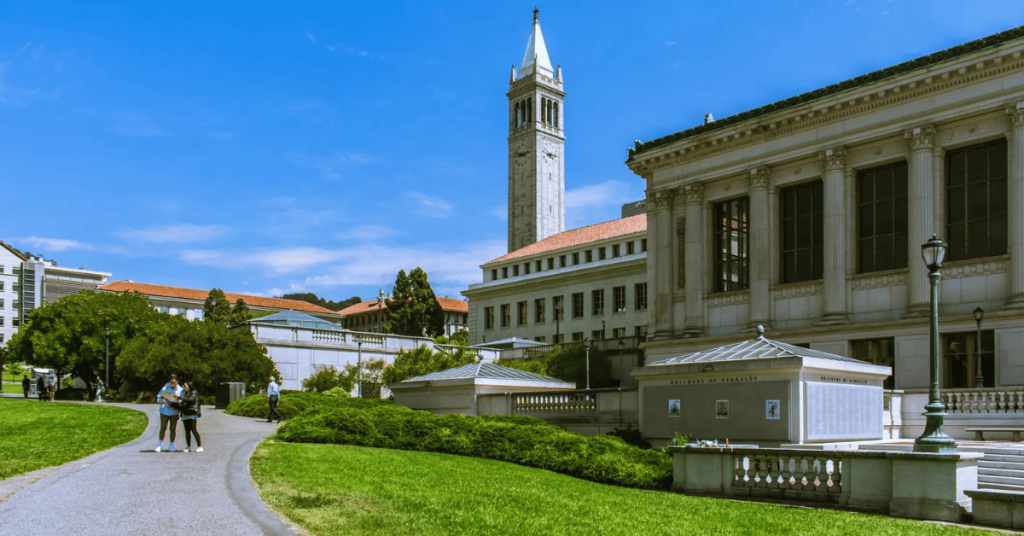
For its demanding academic programmes and innovative research, UC Berkeley is consistently ranked as one of the top public colleges in the United States. Thanks to its excellent staff and active campus atmosphere, it provides a wide range of subjects and majors in engineering, social sciences, humanities, and natural sciences.
2. University of Michigan, Ann Arbor
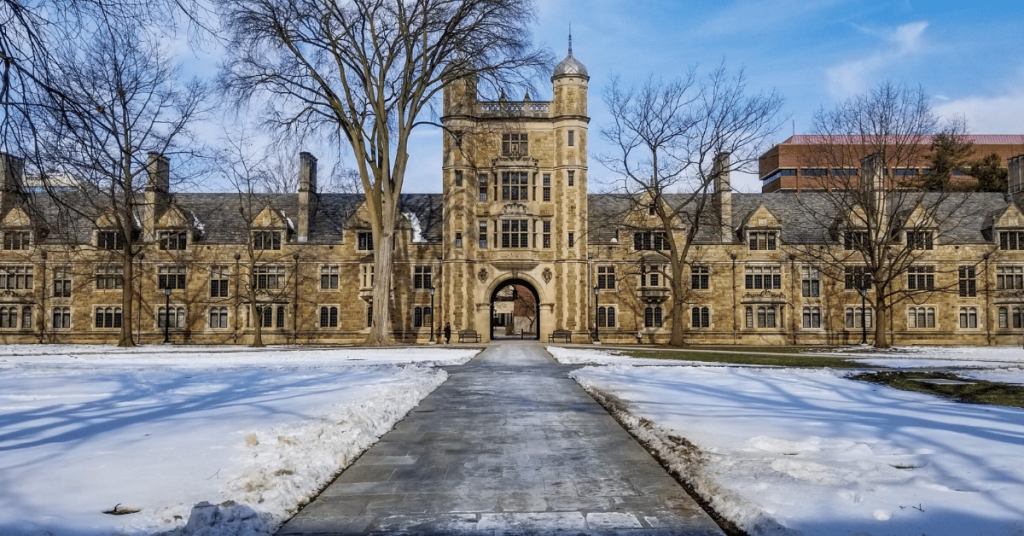
The University of Michigan’s Ann Arbour campus has a storied academic history and a strong commitment to interdisciplinary study. Numerous academic programmes are available, including those from prestigious schools of business, engineering, law, medicine, and public policy. Strong faculty and research initiatives at the university have contributed to its standing as a leading public institution.
3. University of Virginia
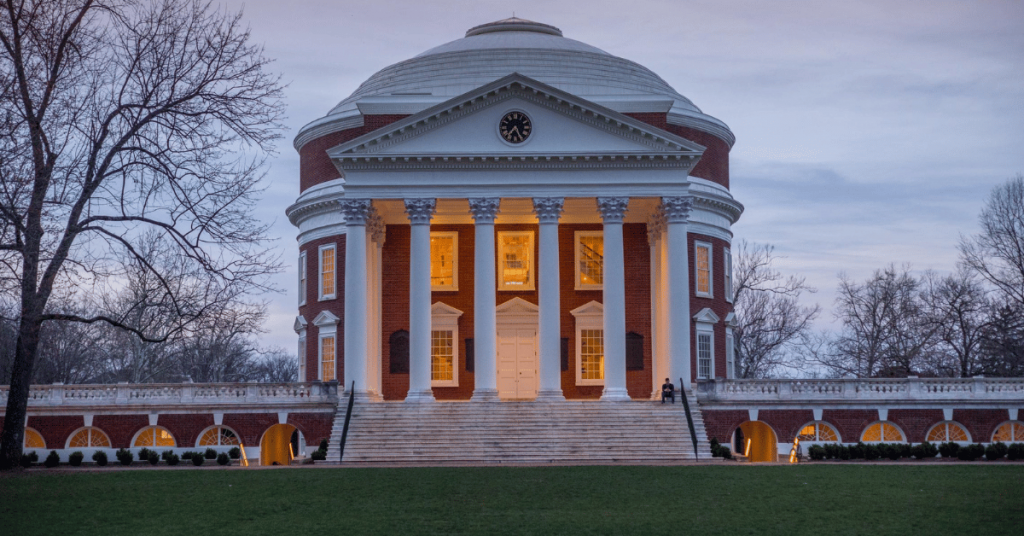
Thomas Jefferson established the University of Virginia, which blends an illustrious past with cutting-edge academic excellence. Thanks to its beautiful campus and concentration on liberal arts education, UVA offers different curricula in a wide range of subjects. The university’s well-regarded academics and dedication to research help to explain why it is ranked as one of the best public universities.
4. University of California, Los Angeles
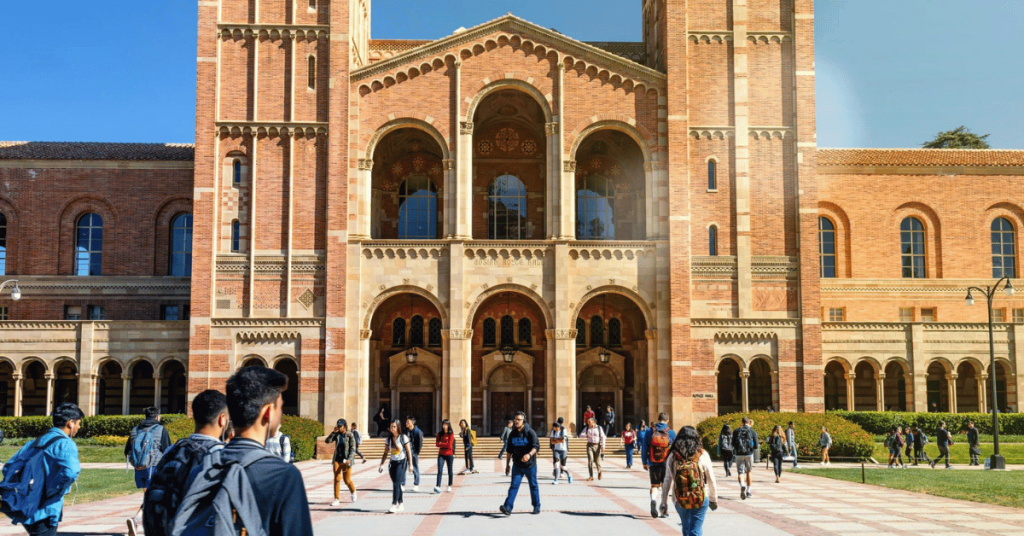
UCLA is a renowned public university noted for its top-notch academic courses and vibrant on-campus culture. UCLA provides students with a well-rounded educational experience and is renowned for its competence in areas including film, performing arts, business, and engineering. Its strategic location in Los Angeles offers uncommon opportunities for networking, internships, and cultural outings.
5. University of North Carolina at Chapel Hill
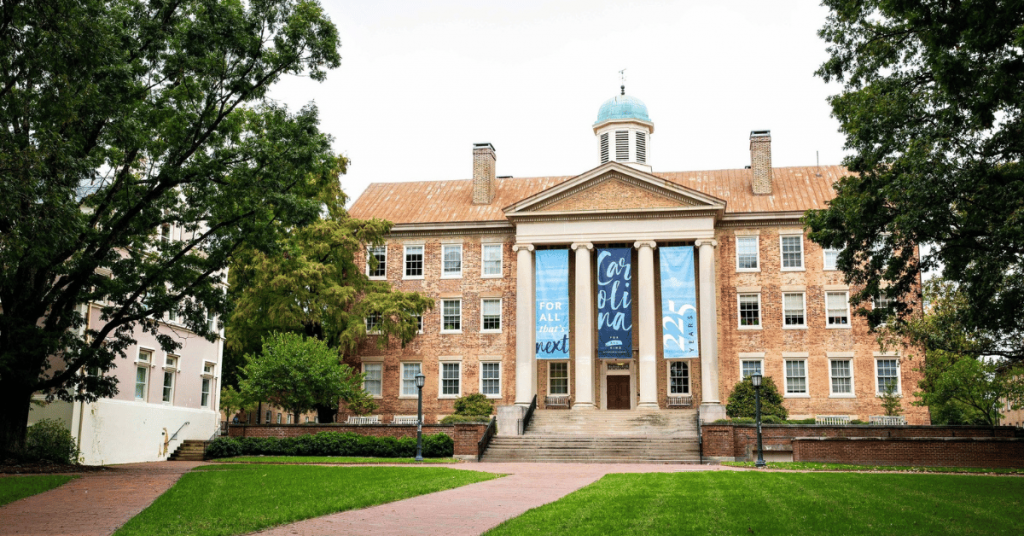
Academic excellence and a strong sense of community are combined at the University of North Carolina in Chapel Hill. As the first public institution in the country, it has a long history of providing affordable, high-quality education. In addition to prestigious journalism, business, public health, and law departments, the institution provides a wide range of programmes. The faculty at UNC Chapel Hill are skilled researchers who contribute to the university’s standing as a top-tier public research university.
6. University of Texas at Austin
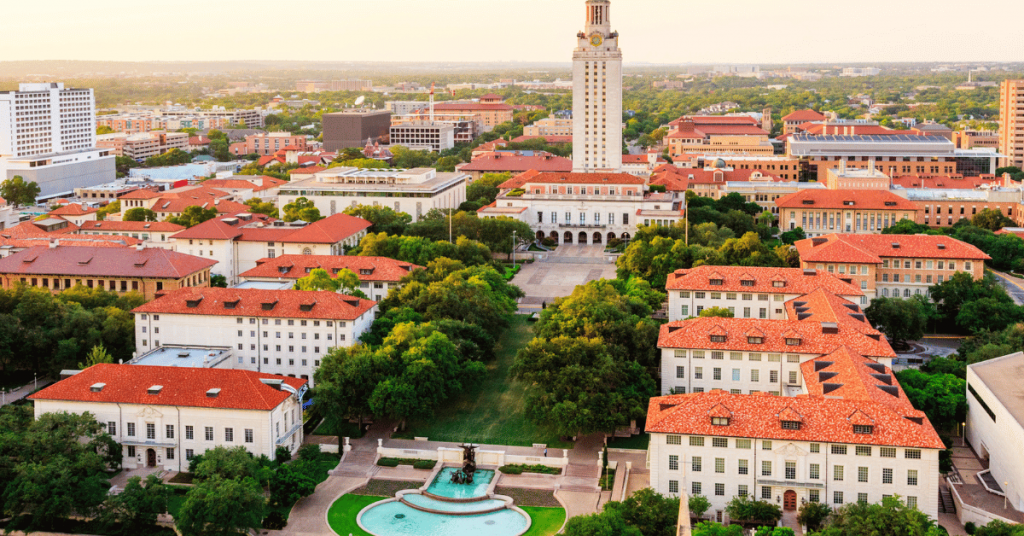
The University of Texas at Austin is renowned for its extensive array of academic offerings and vibrant on-campus culture. UT Austin attracts students from all over the nation and the world with its top-notch programmes in business, engineering, computer science, and the arts. For students looking for a well-rounded education, it is an enticing choice due to its commitment to research and availability of industrial possibilities.
7. University of Wisconsin-Madison
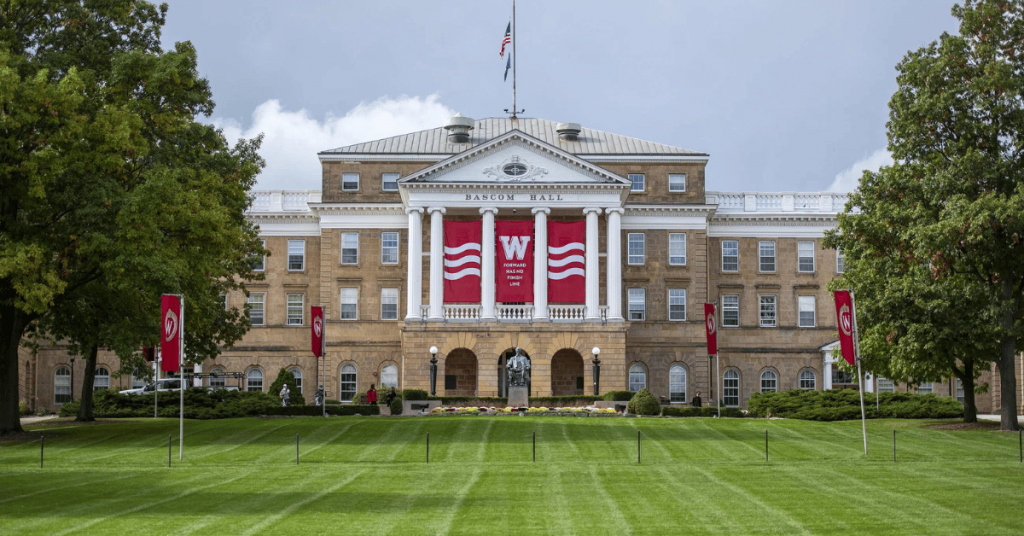
The University of Wisconsin-Madison is renowned for its accomplished academic programmes, groundbreaking research, and vibrant campus environment. By offering a wide range of majors and famous programmes in industries including agriculture, engineering, education, and healthcare, the university gives students a well-rounded educational experience. Its commitment to innovation and teamwork fosters a lively learning environment.
8. University of Washington

A vibrant and intellectually stimulating environment is provided to students at the University of Washington in Seattle. The institution places a high priority on research and provides several opportunities for students to take part in cutting-edge studies in a range of subjects. The academic offerings at UW, which include business, environmental sciences, medicine, and computer science, are frequently rated among the best in the nation.
Tips for Navigating the Application Process

The process of applying to public institutions can be exciting but difficult. Following are some vital pointers to bear in mind as you proceed through the application process:
1. Researching and Shortlisting Universities
Explore Your Options: Start by researching public universities that fit your curricular preferences, career aspirations, and personal preferences.
Prioritise Your Preferences: Based on the factors that are most significant to you, compile a list of the top universities for you. Think about academic courses, research opportunities, campus culture, and other elements that are pertinent to your educational goals.
2. Preparing Application Materials
- Essays: Create intriguing and authentic personal statements or essays highlighting your unique experiences, accomplishments, and goals.
- Transcripts: Make sure that your academic transcripts appropriately reflect your accomplishments. Stay focused on your academics throughout high school and aim for academic distinction.
- Recommendation Letters: Request letters of recommendation from instructors, mentors, or employers who can attest to your academic talents, character, and potential.
3. Understanding Application Deadlines and Requirements
- Be Aware of Deadlines: Remember the application dates for each university you are applying to.
- Review Requirements Carefully: Learn about the individual application requirements of each university. Understand what documentation, test results, and other materials are required and collect them beforehand.
4. Seeking Guidance from Counsellors and Mentors
- Consult Your School Counsellor: Contact your school counsellor for assistance with the application process.
- Seek Mentorship: Connect with mentors, teachers, or people who have completed the college application process.
Unveiling the Golden Key!

Choosing the best public universities in the US is critical to determining your educational path and future employment opportunities.
As you begin your higher education adventure, remember that the higher education landscape is constantly changing. Keep updated on trends, new fields, and interdisciplinary programmes relevant to your interests and professional goals.
Best wishes as you embark on this exciting adventure of higher education.
Embrace the opportunities, learn from the obstacles, and maximise your time at your preferred university with the best guidance and support. Enjoy the journey ahead and believe in the transforming potential of higher education.

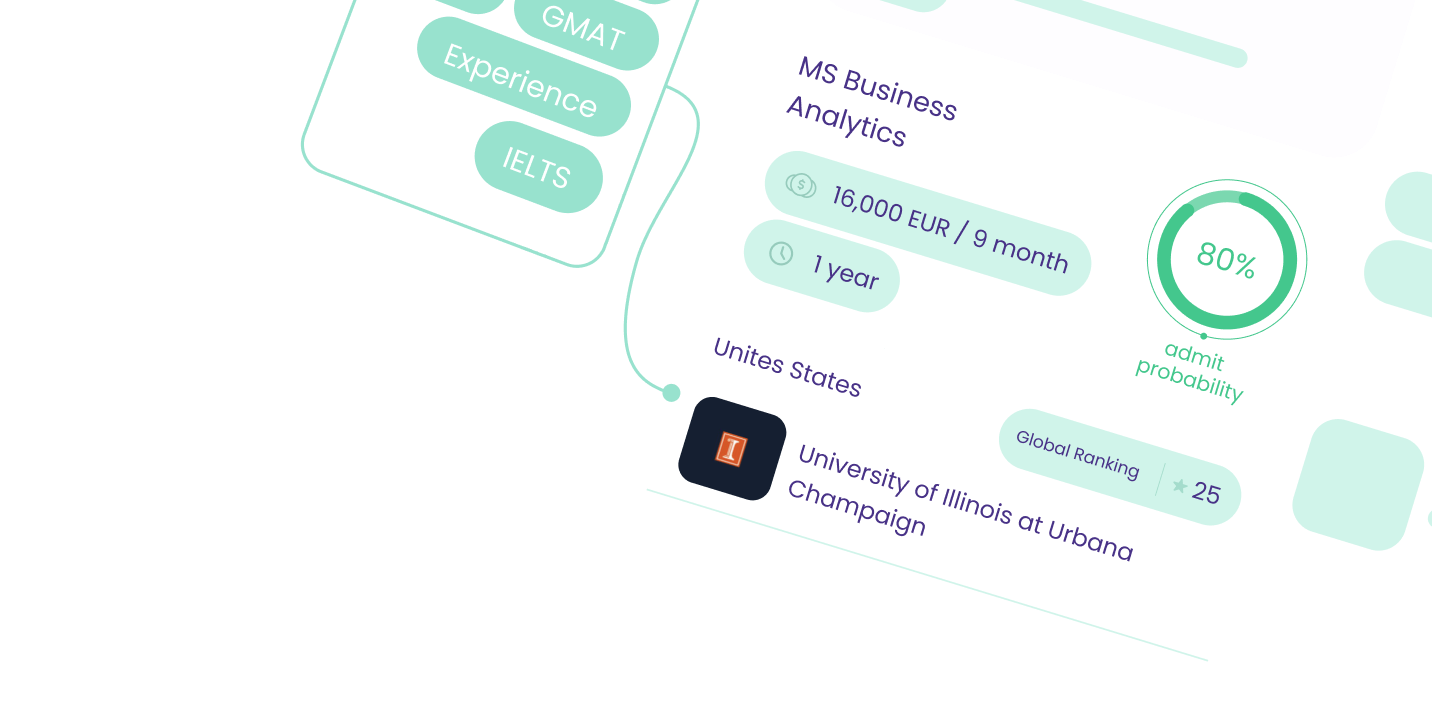
Frequently Asked Questions
Q. Can I apply to more than one public university?
Yes, you can apply to more than one public university. Investigate your options, adhere to deadlines, and submit comprehensive application materials to each university of interest.
Q. Can I transfer from a community college to a public university?
Yes, many public universities provide transfer programmes. To facilitate a smooth transition, research transfer requirements and credit transfer regulations and seek advice from academic advisors.
Q. How can I afford to attend a public university?
Investigate financial aid possibilities such as scholarships, grants, and loans. To determine your eligibility for federal and state help, complete the Free Application for Federal Student Help (FAFSA).





Comments (0)